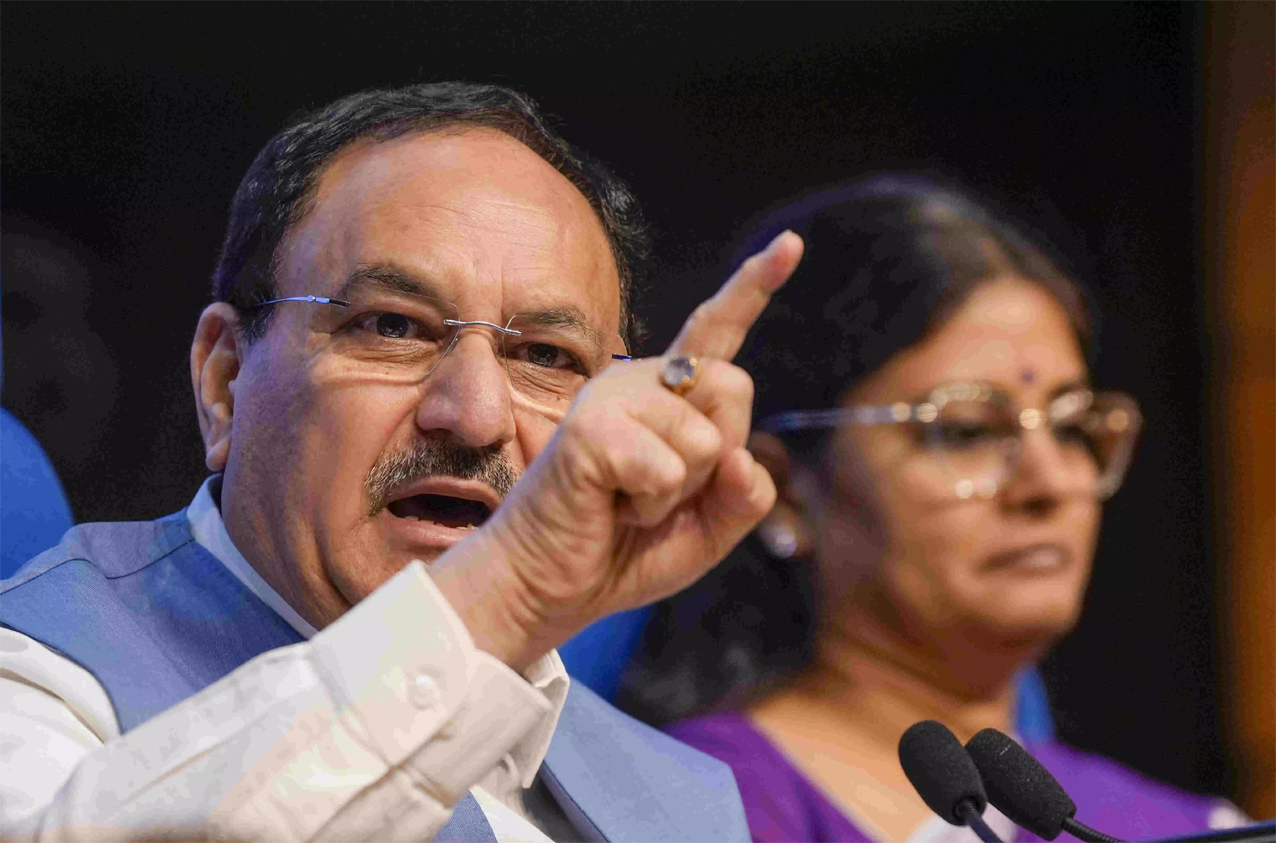 Agencies Agencies
NEW DELHI, Jan 22: Union Health Minister J P Nadda on Wednesday lauded the BJP-led central dispensation's work in bringing about a continuous improvement in the women's health markers ever since it came to power in 2014.
The minister was speaking at the 10th-anniversary celebrations of the Beti Bachao Beti Padhao campaign here.
"In the last ten years, we have seen remarkable efforts for our women. BBBP was not just a campaign to save and educate the girl child, but a broader vision to bring women into the mainstream," Nadda said.
He claimed the initiative has led to significant improvements in India's sex ratio at birth.
"We have moved from 898 to 930, and the day is not far when the sex ratio will reach equality. But this requires us to work together with a focus on education and health," he said.
According to a central government release, India's sex ratio in 2014-16 was 898.
Haryana, often in the spotlight for its skewed sex ratio, implemented strict monitoring of ultrasound clinics to curb illegal sex-selective practices, Nadda said.
Its 'Selfie with Daughter' initiative brought global attention to the cause, promoting awareness about gender equality through community participation.
Madhya Pradesh introduced a novel approach with its 'Lado Abhiyaan,' focusing on delaying the age of marriage and increasing access to education for girls and encouraging parents to educate girls in rural areas, Nadda said.
In Rajasthan, the 'Rajshree Yojana' gave monetary incentives to families for the birth and education of girl children. This not only improved enrollment rates in schools but also helped reduce dropout rates, especially in rural and marginalised communities, the minister claimed .
In Tamil Nadu, the government integrated BBBP objectives with local health campaigns, ensuring better nutrition and vaccination coverage for girls, he said
Nadda said, "In 2014, 130 women per lakh died due to maternal mortality, today, it's 97. Infant mortality has dropped from 39 to 28 per 1,000 live births. The under-five mortality rate has decreased from 45 to 32 per 1,000 children. Globally, there has been a 60 per cent decline, but India has achieved a 75 per cent decline. We have surpassed global benchmarks."
Nadda called for a shift in societal attitudes to bring the historically marginalised women to the mainstream.
"Our women have been philosophers, rulers, and leaders. Yet centuries of oppression brought practices that forced us to enact laws to protect our daughters. We need to set a new narrative, raise our voices, and fight discrimination with full force," he asserted. |
